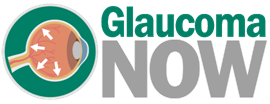Optometrist discusses the slit lamp and how it is used to test your eye health. Always consult with your local Optomtrist for more information.
What is Local Optometrist
If you need contacts or glasses and/or have an eye condition such as glaucoma, macular degeneration, diabetic retinopathy or cataracts, a local optometrist will be an important member of your health care team. A local optometrist is a medical doctor who is trained in providing vision care to people of all ages. Most people need to see a local optometrist once a year for vision testing and to measure their prescription. A local optometrist will use a variety of tools to measure your prescription and health, such as an air puff tonomoter. If you have type 1 or type 2 diabetes, you’re at a higher risk of developing eye-related diabetes complications such as diabetic retinopathy and retinal detachment, so regular vision care appointments are essential. That’s because diabetes affects the blood vessels, and the back of your eye is the only part of the body where a local optometrist can directly see the blood vessels. If you require surgery for any eye condition, your local optometrist will refer you to a local ophthalmologist, who can perform surgeries such as Retinal diseases laser eye surgery, pneumatic retinopexy and scleral buckle repair. If you want more info on how your local optometrist can help prevent, diagnose and treat eye diseases and prescribe glasses, contacts and sunglasses, talk to your local health care provider.
Useful Resources
Canada
Canadian Association of Optometrists
Northwest Territories
Nunavut
United States of America
National Provider Identifier (NPI)
Australia
Australian Health Practitioner Regulation Agency
United Kingdom




